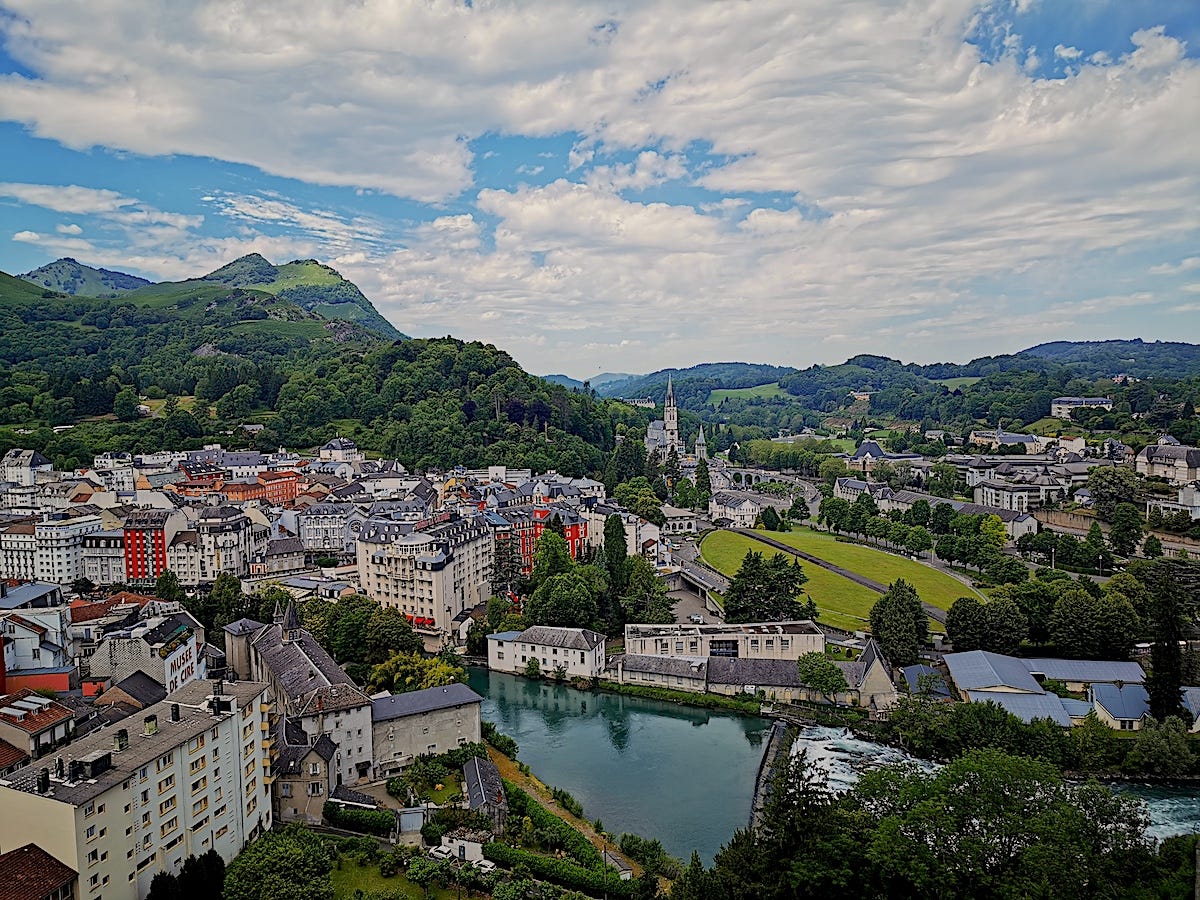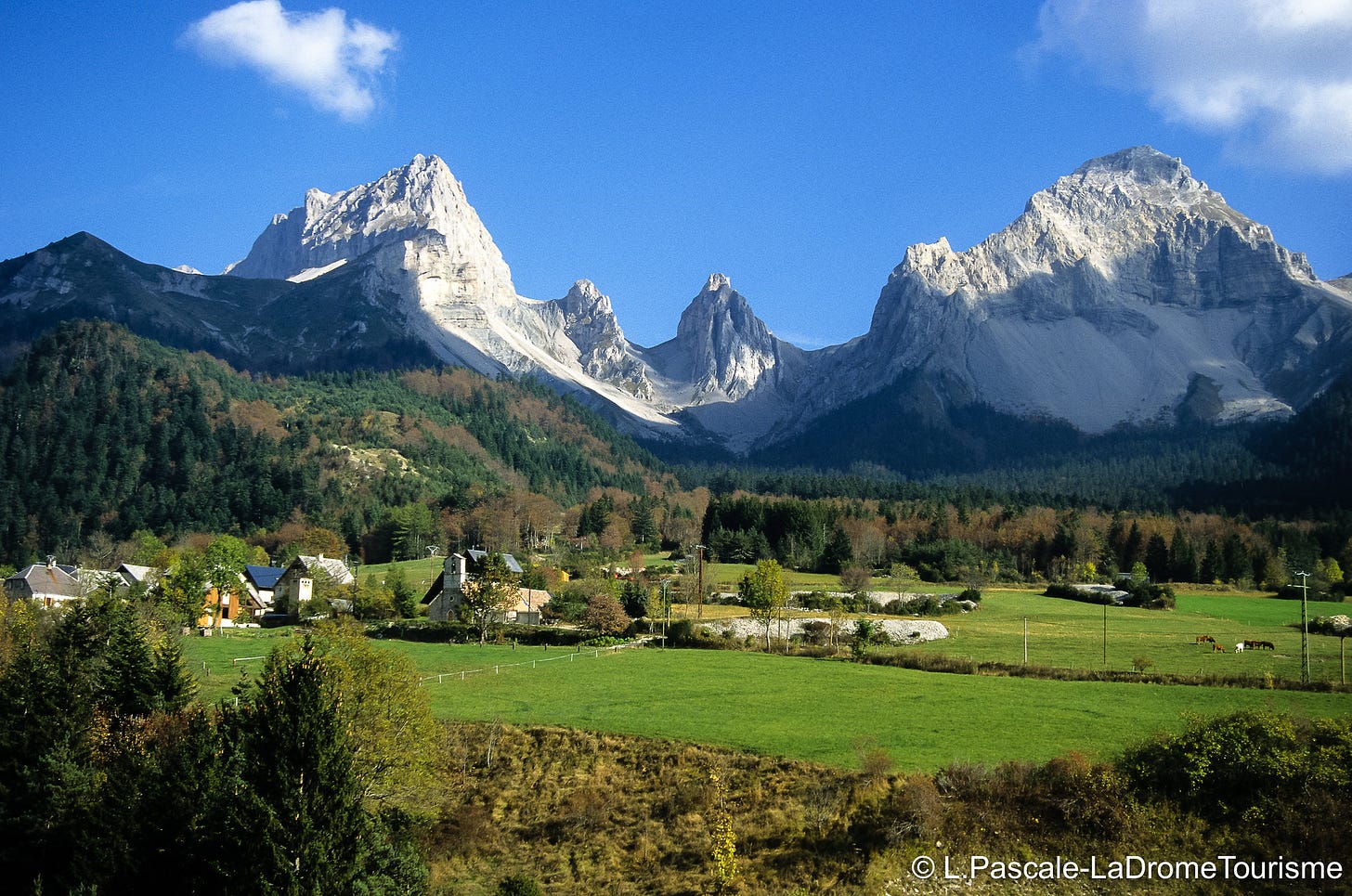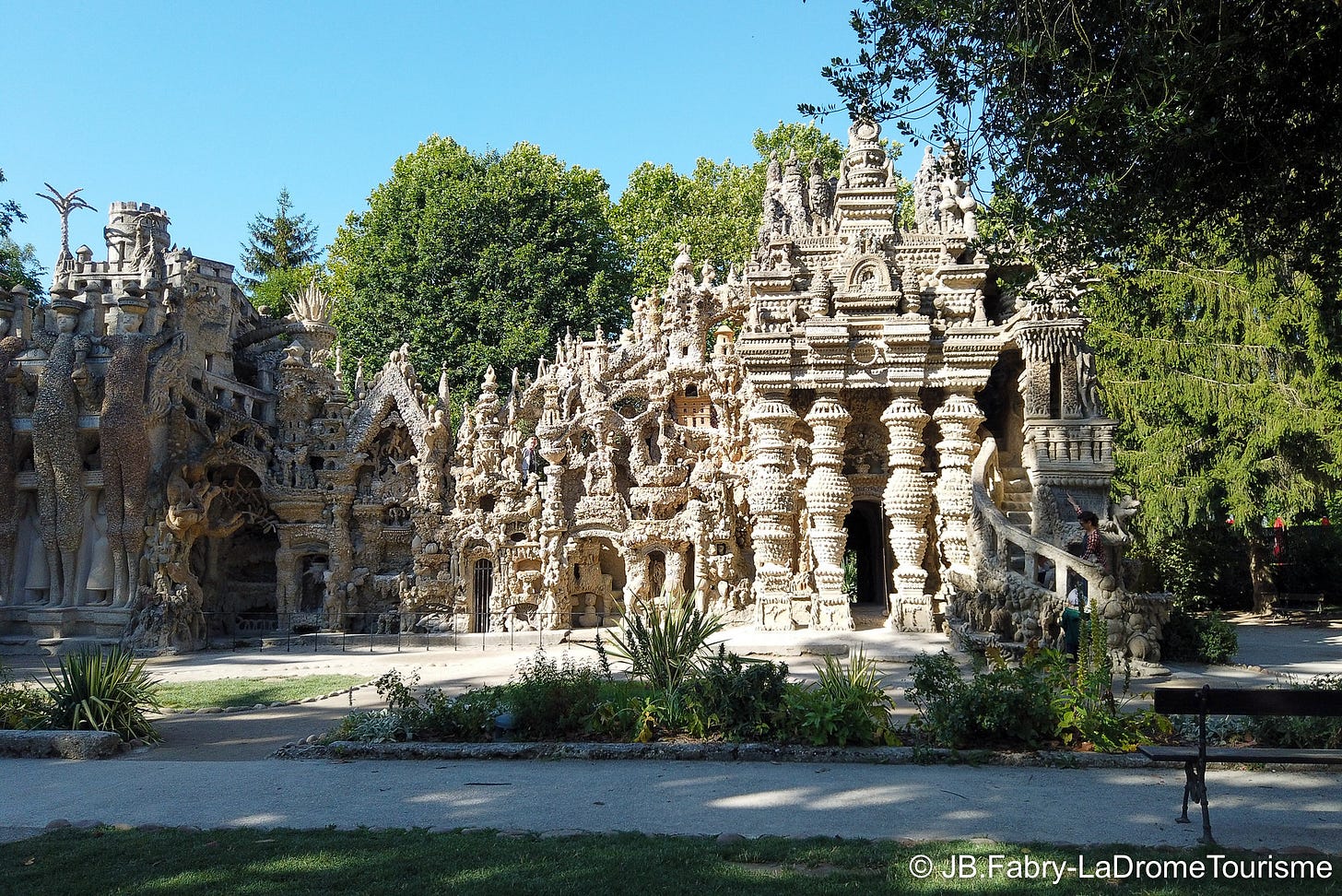Once Upon A Time In France: Naked Césars, Digital Doom, And Praying For Tourism
Dreaming of La Drôme
Those who knew us in our pre-French lives will recall that for many years we threw a rather swinging Oscar party. We wore tuxedoes and gowns, awarded chocolate Oscars to the person who correctly guessed the most winners, and served then-trendy cocktails like Cosmopolitans.
It was a tradition that began when we lived in North Carolina and then continued when we relocated to California. Though the shift necessitated a bit of rethinking due to the timezones. Oscars on the East Coast are cocktails and nibbles, but on the West Coast, they’re a dinner party, which we learned the hard way the first year when we ran out of food after an hour.
The Oscars eventually became a year-round affair. We tracked potential nominees and attempted to see every movie in the Best Picture category, a task that became far more challenging after we moved to France. Release dates, particularly for smaller independent films, can vary quite a bit between the U.S. and Europe. And as for watching the Oscars, well, Canal+ broadcasts them live starting around midnight and quite tragically has several French announcers talking over the ceremony while at the same time streaming the live sound at a fairly high volume. The result is the worst of both worlds.
Of course, France has the César Awards. We haven’t embraced them in quite the same way as the Oscars, mostly due to our lack of familiarity with French cinema. Even pre-pandemic, we didn’t get out to the theaters as much as we used to go. And when it comes to watching movies at home, our kids, despite being bi-lingual, are militantly opposed to watching anything in the French language. In their minds, they get 10 hours of school every day, all week which is enough French. Proposing that we watch something together as a family in French is met with howls and is seen as a cruel punishment on par with taking their smartphones away.
So my main observations of the Césars involve the controversies they seem to generate each year. Last year, it was the revolt caused by the nomination of Roman Polanski for several awards. This year, it was presenters protesting the continued closing of cultural centers and movie theaters in France, an issue that is becoming increasingly sensitive. Across the country, protestors from the film and acting communities have been occupying theaters to protest the closures and make demands for greater financial support.
Personally, with case levels still high, the vaccine rollout slow, and variants running rampant, I can’t imagine going to see a movie in a theater, even with social distancing and intensive cleaning between each session. Yet the issue in France, as elsewhere, has often been around consistency.
"My children can go to Zara (fancy clothing store chain) but not the cinema... it's incomprehensible," said Stephane Demoustier, the winner for best screenplay for "The Girl With a Bracelet.”
The ceremony’s host, Marina Fois, lamented at the beginning, “Why do the Caesars this year, without theaters and without an audience, and an audience without films, why bother?"
But the image that will linger will be that of actress Corinne Masiero who is currently the star of the smash-hit TV show Capitaine Marleau. Masiero came on stage to present the award for best costume wearing a donkey suit, an apparent reference to the French movie Peau d’Âne (Donkey skin), a fun 1970 musical about a king who wants to marry his daughter played by Catherine Deneuve.
Masiero promptly dropped the donkey costume and stood naked on the stage, covered in fake blood with the words “No culture, no future” written across her front. On her back was a message for Prime Minister Jean Castex: “Give us back art, Jean." The original French, Rends nous l’art Jean, was also a play on words. When spoken out loud, it could sound like Rends nous l’argent or "Give us our money back."
In addition to the cultural controversy, actor-comedian-director Jean-Pascal Zadi managed to cause a stir when he received the award for “best male hope” (which is kind of like best newcomer) for his film Tout Simplement Noir. The film is a low-budget mockumentary that was a big hit last summer when theaters opened for a few weeks. It tells the story of an unemployed actor who decides to organize a protest over racism in France.
In winning the award, Zadi thanked a list of black actors for making his success possible. But he also addressed police violence, citing Adama Traoré, whose death in police custody triggered France’s own Black Lives Matters protests last summer. Many in France blame American influence for the growing BLM movement in a country that likes to believe it is officially color blind.
As such, the reaction to Zadi’s speech got the hashtag #CesarDeLaHonte (embarrassing César) trending over the weekend as conservatives blasted Zadi’s support for Traoré.
Though the issues change and the cultural context varies, the notion of celebrities using their platform to protest and speak out draws the same kind of ire from the right in France as it does in the U.S. So, at least we still have that much in common.
Digital Dystopia
My day job involves writing about technology and I usually keep that world separate from this one. But recently, some of those issues have spilled into the daily French headlines.
The biggest news being a fire at a Strasbourg data center operated by OVHCloud, a pride of the nation’s technology economy. The company had just confirmed earlier last week that it was going to go public, a major milestone and cause for celebrations.
The next day, one of its data centers went up in flames and in the process knocked out a significant number of websites across the country. That included government websites and small businesses, and it seems many had not backed up their data or established emergency recovery plans.
At the same time, the nation has been coming under a growing wave of cyberattacks, including a vicious campaign against hospitals. Last week, a hospital in Oloron-Sainte-Marie near the Pyrénées was the victim of a ransomware attack demanding $50,000 in Bitcoin. This was the third such attack this year after 2 other hospitals were all but knocked offline.
The government has announced a €1.3 billion cybersecurity plan to reinforce the nation’s defenses. (You can read my interview with French Digital Minister Cédric O here). But in a nation that still lags in terms of getting its people and businesses online, these kinds of incidents don’t really help overcome lingering skepticism about the safety and value of digital life.
Praying For Tourism
I am fascinated by all things related to Lourdes. Part of it is no doubt the lapsed Catholic in me. And part of it is living in the Southwest of France and reading stories about this famous religious destination.
The last time I visited was for a story about an improbable Broadway-style musical called Bernadette that tells the story of the teenage girl whose visions of the Holy Mary eventually turned a sleepy mountain town into one of the Catholic church’s most important religious pilgrimage destinations. Beyond the religious aspect, Lourdes has the 2nd most annual hotel stays of any city in France, making it one of the nation’s biggest tourism magnets.
However, those religious visitors were already declining sharply before the pandemic, putting the city in crisis mode. Now Covid has completely gutted the local economy. A story by Le Monde reports that visits to the Lourdes Sanctuary fell 75% last year. The Sanctuary lost €4 million on a €40 million budget in 2020. The dozens of gift shops that serve religious visitors are all but closed. Numerous hotels are in danger of permanently closing.
Meanwhile, the city’s tax revenues have evaporated. The mayor elected last summer has vowed to diversify the city’s tourism economy and focus on the environment and positioning it as a hub for visiting the Pyrénées. Which is what the previous mayor promised to do. The national and regional governments have announced substantial bailout plans, but local leaders are still scrambling to salvage the economy.
The bright spots? The Sanctuary notes that subscribers to its YouTube channel have soared to 800,000. And it has seen a sharp rise in donations.
But really, the future is grim. Given that 80% of the local economy depends on tourism, particularly international visitors, it’s hard to see how things recover in Lourdes.
Dreaming Of France
La Drôme is found in Southeast France, with the Rhône River running along its western border and the city of Grenoble just to the east. Within this incredibly diverse corner of France, one can see mountains just to the east, as well as some of Provence’s famed lavender fields. In between, there is remarkable camping and hiking, including the Huguenots Exile Trail and the Val de Drôme.
La Drôme’s most renowned tourist attraction is the Palais Idéal du Facteur Cheval or the Mailman Cheval’s Ideal Palace. This is an astounding piece of folk art built meticulously over 33 years by local mailman Ferdinand Cheval who saw the image of the palace in a dream. He began picking up rocks along his route and between 1879 and 1918 Cheval used them to create his masterpiece. The recent biopic about Cheval is well worth watching.
Great Reads
The New York Times had a disturbing look at how France’s far-right is remaking its image to appear more mainstream, a strategy that helped its mayoral candidate win in Perpignan last summer. The Washington Post profiled the attorney leading the fight against sexual violence in France. And the Guardian notes that cheese sales soared under lockdown last year. But in a blow to national pride, the cheese that saw the biggest sales increase was…mozzarella.
Toulouse, France
Chris O’Brien









